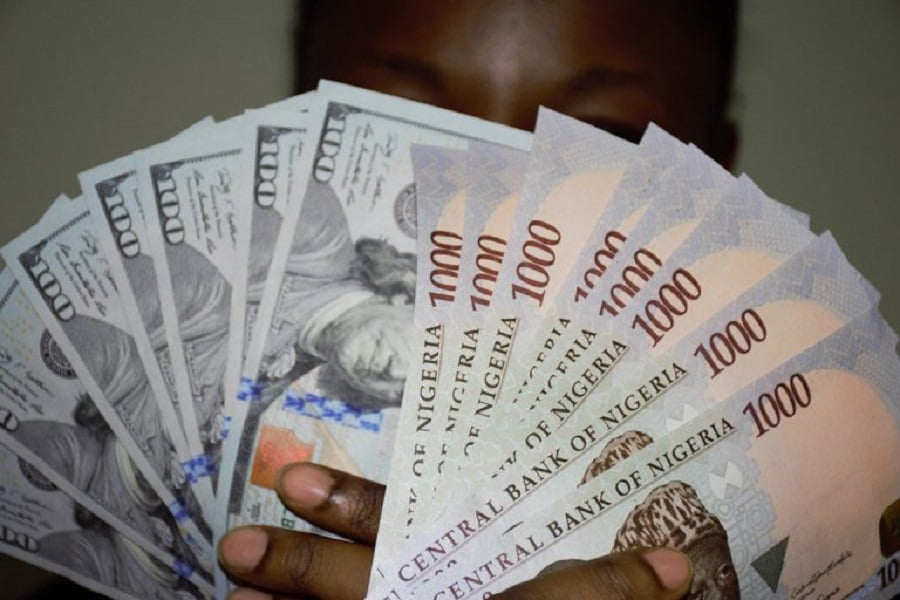The naira recorded marginal depreciation at the official window after the Central Bank of Nigeria (CBN) announced indefinite extension of its ‘Naira-4-Dollar’ scheme.
The naira dropped to N411.25/$1 on the Investors and Exporters (I&E) Window from N410.33/$1 after the CBN’s policy extension was ade public.
At the parallel market, the local currency yesterday remained unchanged at N483/$1, same rate it has maintained since the policy extension on May 8.
The CBN had promised that the new policy would provide Nigerians in the Diaspora with cheaper and more convenient ways of sending remittances to the country.
The policy, which gives N5 rebate for every one dollar sent by Nigerians in diaspora to the country, allows direct payment into the account of beneficiaries, after receipt of the remittance inflows.
The policy extension was to enable the CBN boost Nigeria’s foreign exchange market liquidity by attracting additional dollar inflows through diaspora remittances.
Diaspora remittances dropped by $4.65 billion in 2020 but is expected to rise to $22 billion by the end of this year as the ‘Naira 4 Dollar’ scheme implementation continues.
Forex Trading Associate, AZA, a global forex dealer, Oghenefejiro Eduviere, said that under the incentive scheme, all recipients of diaspora remittances through approved International Money Transfer Operators (IMTOs) and commercial banks receive an additional N5 for every dollar.
“While the naira was stable in the parallel market at N483/$, we expect it to maintain these levels. We anticipate slight weakening towards N420/$ on the I&E window as the ‘Naira 4 Dollar’ scheme extension amounts to a limited technical devaluation,” he said in emailed report to investors titled: ’Naira slides as ‘Naira 4 Dollar’ extended’.
In a circular to all authorised dealers and deposit money banks signed CBN Director, Trade and Exchange Department, A.S Jibrin, said the policy, which was to end on May 8 will continue.
He added that all aspects of the operationalisation of the programme remain the same.
He said: “Further to the CBN Circular referenced TED/FEM/PUB/FPC/01/003 dated 05 March 2021 on the above subject matter, which was originally scheduled to end on 08 May 2021, we hereby announce the continuation of the scheme until further notice”.
Defending the dollar policy, CBN Governor, Godwin Emefiele said the policy implementation would increase the transparency of remittance inflows and reduce rent-seeking activities.
He expressed optimism that the policy extension will encourage banks and financial institutions to develop products and investments vehicles, geared towards attracting investments from Nigerians in the diaspora.
Managing Director, Financial Derivatives Company Limited, Bismarck Rewane, attributed the naira’s continued decline to heightened forex supply shortage, demand pressure and rationing. He said naira rates convergence would require adoption of a full floating exchange rate system determined by the forces of demand and supply.
Likewise, the International Monetary Fund (IMF) said exchange rate rigidities have constrained the economy’s ability to absorb external shocks.
The IMF insisted that restrictions on access to foreign exchange for certain categories of goods, and multiple exchange rates create distortions in both private and public sectors decision making. They discourage long-term investment, encourage smuggling and provide avenues for corruption.
Moving forward, the Fund suggested removal of foreign exchange restrictions, and a full exchange rate unification, in line with the authorities’ Economic Recovery and Growth Plan (ERGP), will help keep the parallel market premium low in a more sustained manner.
It therefore called for unified exchange rate for the naira to promote growth and attractive foreign capital.
According to the IMF, foreign exchange backlog and shortages are intensifying Balance of Payment (BoP) pressures insisting that exchange rate unification was imperative to reduce BoP risks. It said that fiscal deficit will stay elevated in the medium term, while additional domestic revenue mobilisation is required to reduce fiscal risks.
Thenation

